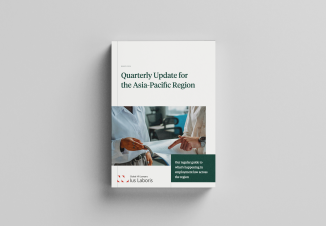
In early 2022, 33 employers signed up to test out four-day working weeks for a six-month period. The trial, organised by the organisation 4 Day Week Global in collaboration with researchers at Cambridge University, Boston College and University College Dublin, was mainly composed of US and Irish employers (though one large participant also had employees in New Zealand, Australia and the UK). It included both private sector companies and non-profit organisations. Many of the participants were small employers, with 52% having ten or fewer employees.
All the participating employers pledged to continue paying employees 100% of their five-day-a-week wage while giving them a ‘meaningful’ reduction in working time.
On average, hours worked per week fell from 40.83 to 34.83 (slightly more than four working days in total).
27 out of 33 employers and 495 employees out of 903 completed the final survey on their experiences of the trial.
On a scale from 0 (very negative) to 10 (very positive), the employers rated the trial experience a 9. Virtually all the employees (96.9%) wanted to continue with the experience.
On a more granular level, the report says:
‘Companies are extremely pleased with their performance, productivity and overall experience, with almost all of them already committing or planning to continue with the 4 day week schedule. Revenue has risen over the course of the trial. Sick days and absenteeism are down. Companies are hiring. Resignations fell slightly, a striking finding during the “Great Resignation.” Employees are similarly enthusiastic. And climate impacts, while less well-measured, are also encouraging.’
This is a very small trial and the proportion of employees in particular who did not provide final survey results is high. In addition, the stated mission of the organising body, 4 Day Week Global, is ‘supporting the idea of the 4 day week as a part of the future of work’, so it is not surprising to see these results presented as a resounding success.
Even so, the level of satisfaction with the trial, particularly from employers, is strikingly high. For this small sample of organisations, the four-day week has proved successful, at least in the short term. This is likely to give many employers food for thought as they consider issues around employee wellbeing, recruitment and retention. With further pilot programmes planned imminently and high levels of media interest around this potential shift in working patterns, we have not heard the last of the four-day week.
To read the full report, click here.
For more information about working hours



